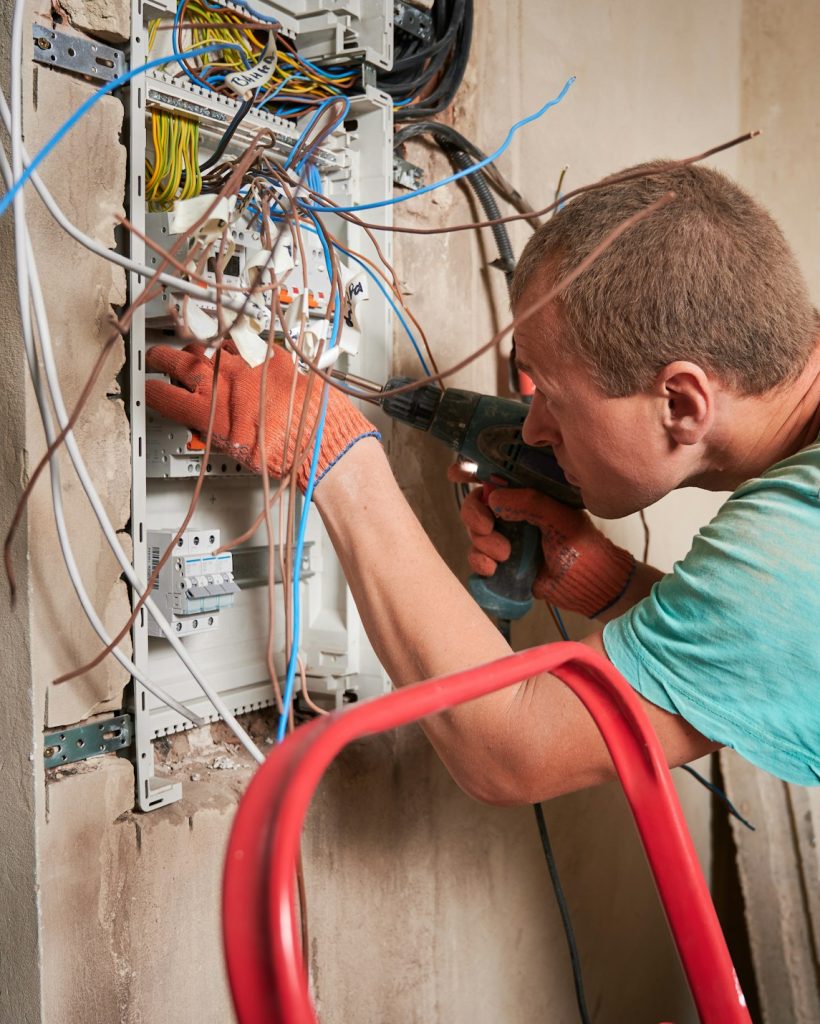In today's safety-conscious environment, ensuring the integrity of a property's electrical systems is essential. Whether you're a homeowner, landlord, or tenant, understanding the Electrical Inspection Condition Report (EICR) and obtaining a valid EICR certificate are critical for both legal compliance and peace of mind.

What is an Electrical Inspection Condition Report?
An Electrical Inspection Condition Report, or EICR, is an official document detailing the condition of a building's electrical installations. Conducted by qualified electricians, an EICR inspects electrical circuits, systems, and appliances to assess their safety, functionality, and compliance with current standards. The report aims to identify any risks, faults, or potential hazards that could compromise safety.
Why is an EICR Certificate Important?
The EICR certificate, issued following a successful inspection, is a crucial document that verifies an electrical system is safe and meets the standards outlined by the Institution of Engineering and Technology (IET). In addition to validating safety, the EICR certificate is often required for insurance, property sales, and rental agreements. For landlords, an up-to-date EICR is legally mandated, ensuring tenants’ safety and reducing liability risks in case of electrical issues.
How Often Should an EICR Be Conducted?
The frequency of an EICR inspection varies based on the type of property:
- Residential Properties: Every 10 years or upon the sale of the property.
- Rental Properties: Every 5 years or at the start of a new tenancy.
- Commercial Properties: Every 5 years or according to the specific usage demands.
- Industrial Properties: Every 3 years due to higher electrical loads and safety risks.
These intervals ensure that the electrical systems remain compliant and safe for occupants.
What Does an EICR Inspection Involve?
An EICR inspection involves a thorough examination of the property's electrical installations, covering:
- Condition of Electrical Installations: The inspector assesses the state of wires, outlets, switches, and other components.
- Damage or Wear: The inspection identifies any visible signs of wear, which may pose future risks.
- Safety Compliance: The electrician ensures that installations meet the latest safety standards.
- Electrical Testing: Each circuit is tested to confirm correct function and protection, including checking for earth continuity and insulation resistance.
Upon completion, the inspector will grade each finding, indicating whether any urgent actions are required or if improvements are recommended.
The EICR Grading System
EICRs use a coding system to indicate the severity of any identified issues:
- Code 1 (C1): Immediate danger; requires urgent action.
- Code 2 (C2): Potentially dangerous; requires action to eliminate risks.
- Code 3 (C3): Improvement recommended; does not present immediate danger but should be addressed.
- Further Investigation (FI): Additional investigation needed to assess a potential issue.
If an EICR report contains any C1 or C2 codes, the property fails the inspection and corrective actions must be taken before an EICR certificate can be issued.
Key Benefits of an EICR Certificate
- Enhanced Safety: An EICR ensures that your electrical systems are safe for daily use.
- Legal Compliance: For landlords, a valid EICR certificate is legally required to rent a property.
- Reduced Liability: In case of electrical incidents, an EICR certificate can demonstrate that you’ve taken responsible safety measures.
- Improved Property Value: Having an up-to-date EICR can be a selling point for potential buyers, as it demonstrates the property’s safety standards.
Obtaining Your EICR Certificate
To get an EICR certificate, reach out to a qualified electrician or an accredited inspection company. Make sure to verify the electrician's qualifications to ensure they can issue legally recognized EICR certificates. The process typically involves scheduling the inspection, allowing access to all electrical installations, and making any necessary repairs if the report indicates faults.
You can find more information on our website, so check it out.
eicr electrical installation condition report












